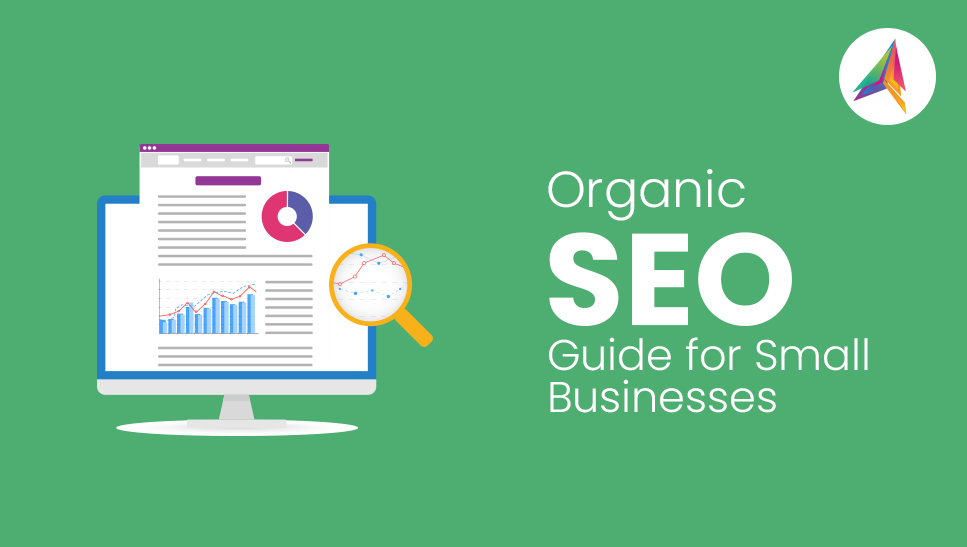Today, small businesses aren’t at all able to ignore organic SEO because of everything outweighing that. Research shows that 68% of online experiences start out in search engines while another 53.3% of website traffic is from organic searches. This gives an imperative need for mastering SEO as it isn’t indeed an option but rather a matter of survival. At Web2Byte, the leading name in digital marketing services, we understand that it is pretty intimidating to go against industry giants, but using the right organic SEO tactics, your small business can have an identity at the global level. Here’s how you can get started.
Table of Contents
1. Strategic Keyword Selection: The Foundation of SEO
Find High-Impact Keywords
Be pinpointing a keyword for your SEO journey. These terms become bridges connecting your business with potential customers. Use tools like Google Keyword Planner, Ahrefs, or SEMrush, and figure out the respective industry keywords. For example, a bakery in Austin might be more interested in words like “artisan sourdough bread Austin” rather than “bread.”
Leverage Long-Tail Keywords
Long-tail keywords (e.g., “affordable wedding florist near me”) may not often see huge search volumes, but they do target very specific audiences. Phrases like these tend to face much less competition and closely match user intent, making them very suitable for niche markets.
Pro Tip: Do keyword analysis for competitors using tools such as SE Ranking. Locate the loopholes in their strategies and take advantage of those unexploited opportunities.
2. Content Creation: Quality Over Quantity
Craft Valuable, Keyword-Rich Content
Google prefers those contents that answer users well. So, write a blog post, guide, or video to answer audience pain points while naturally including keywords. For example, a plumbing company could write “How to Fix a Leaky Faucet in 5 Steps” by putting in phrases such as DIY plumbing repair or emergency leak solutions.
Showcase Expertise Through Blogging
Blogging every so often makes your business known as an authority on the industry. Share testimonials or how-to’s or even analyses on trends to attract readers. Did you know businesses that blog get 55 percent more visitors to their website? Use WordPress or Medium to share and redistribute through social media or podcasts.
3. Local SEO: Dominate Your Neighborhood
Craft Valuable, Keyword-Rich Content
Almost 46 percent of Google searches count local information in their query. Claim and optimize your GMB profile using the following details.
- Name, address, phone number (NAP) of the business
- Operating hours and some photos
- Respond to reviews without delay
Craft Valuable, Keyword-Rich Content
Blogging every so often makes your business known as an authority on the industry. Share testimonials or how-to’s or even analyses on trends to attract readers. Did you know businesses that blog get 55 percent more visitors to their website? Use WordPress or Medium to share and redistribute through social media or podcasts.
4. Build Credibility with Backlinks
Earn High-Quality Backlinks
Backlinking from trusted sites is what search engines appetite. Web2Byte recommends:
- Outreach Campaigns: Ties with local bloggers or industry influencers.
- Guest Posting: Write something for the authoritative sites within your niche.
- HARO: Help a Reporter Out- offer expert insights with journalists.
Create Shareable Content
Infographics, case studies, and video tutorials sell themselves naturally to backlinks. A landscaping company could write one, say, on “10 Drought-Resistant Plants for Texas Gardens,” and have it with visuals that encourage sharing from some gardening communities.
5. Track Performance & Stay Agile
Use Google Analytics
Track organic traffic, bounce rates, and conversion perspectives. Look for trends: are they leaving after a single page? Is the blog actually generating traction? Revise strategy in accordance with data
Adapt to Algorithm Updates
The algorithms of Google are going to constantly evolve. Many of the 2023 updates were targeted towards improving user experience (UX) and better mobile. Keeping up with the trend includes:
- Adopting mobile-first design
- Advantages had once optimized for voice output (e.g., "Where's the nearest coffee shop?")
- Content according to search intent
Why SEO is a Marathon, Not a Sprint
SEO gives results in the long term. Paid ads may be able to generate some quick wins, but organic SEO fosters some states of sustainable growth. BrightEdge’s research found that organic search is responsible for 53% of site traffic, putting it ahead of social media and email combined.
Conclusion
For any small business to still succeed by 2025, it should anchor itself in SEO: targeting that key strategic term, providing useful content, optimizing it for local searches, and acquiring quality backlinks will enable you to leave your competition behind and beat them in the game—no corporate budget needed!
At Web2Byte, we offer local SEO empowerment services to small businesses. Are you ready for sustained growth? Let’s make your website a magnet for customers.
FAQ's
What is SEO, and why is it important for small businesses?
SEO (Search Engine Optimization) is the process of optimizing your website to rank higher on search engines like Google. For small businesses, SEO helps attract organic traffic, improve visibility, and compete with larger companies without a big budget.
What is local SEO, and how can it benefit my business?
SEO (Search Engine Optimization) is the process of optimizing your website to rank higher on search engines like Google. For small businesses, SEO helps attract organic traffic, improve visibility, and compete with larger companies without a big budget.
Can SEO replace paid advertising for my business?
SEO (Search Engine Optimization) is the process of optimizing your website to rank higher on search engines like Google. For small businesses, SEO helps attract organic traffic, improve visibility, and compete with larger companies without a big budget.



